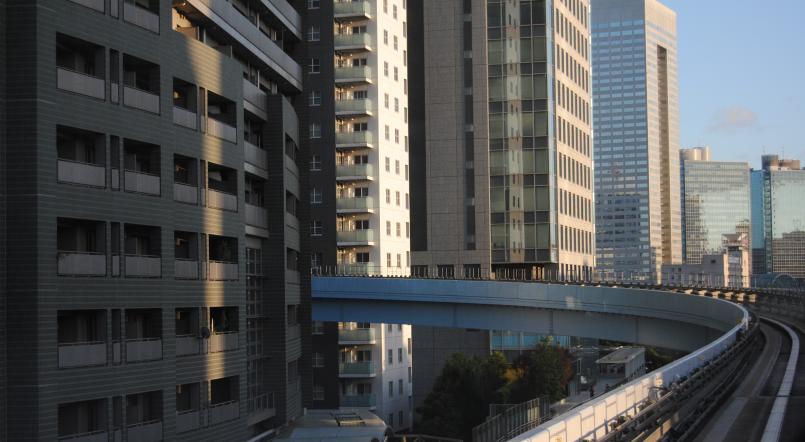Japan’s Leading MBA Provider
Seeking to provide quality business management education in Japan, Harvard Business School (HBS) graduate Yoshito Hori adopted the HBS “case method” and founded GLOBIS in 1992 with a class of twenty students. 21 years on, the business school has become the leading MBA provider in Japan, and is rapidly expanding its presence in the rest of Asia: its MBA enrolment rates have grown by eight hundred percent in the last eight years. In addition to recently setting up an office in Shanghai, GLOBIS is also actively building strong relationships in the region, having just signed a memorandum of understanding with the Human Capital Leadership Institute to co-create Asian business leadership insights.
Hori-san shared that his personal mission has evolved as GLOBIS expanded its influence through the years. From seeking to train and develop capable business leaders on an individual level, he now holds close to his heart a passion to contribute to Japan on a societal level.
Growing Economies, Leading Entrepreneurs
It is with such a mindset that he discussed the positive impact “Abenomics” (incumbent Japanese Prime Minister Shinzo Abe’s suite of economic reforms) has had on the Japanese economy. Summarising the suite of economic policies as a three pronged approach of “aggressive monetary policy, positive fiscal policy and global growth strategy”, Hori-san shared that the positive contributions to the Japanese economy have been evident: stock markets have risen sixty percent[1], unemployment is gradually decreasing, while GDP has been rising and getting back on a healthy growth path.
The positive momentum in the economy provided the backdrop for Hori-san to share some interesting facts: the world’s second youngest self-made billionaire (ranked only behind Facebook founder Mark Zuckerberg) and most successful female IT entrepreneur both hail from Japan, while GLOBIS recent growth figures have placed it as one of the world’s fastest growing business schools. Beyond the abovementioned Yoshikazu Tanaka and Tomoko Namba, founder of GREE and DeNA respectively, the Tokyo Stock Exchange has also recently seen its record for youngest CEO of an IPO company broken by 25-year-old Livesense founder Taichi Murakami. For the record, Tanaka-san has accumulated a net worth of USD1.6 billion at the young age of 36, while Namba-san’s DeNA now operates in ten countries and is valued at USD3.5 billion.
Japan’s own Google, Facebook and Yahoo!
Several interesting trends can be spotted from these facts. Firstly, GREE, DeNA and Livesense are all IT-related firms, with the former two dealing in social networking platforms while Livesense specializes in web portal services. This is a healthy parallel to Silicon Valley, which houses the headquarters of the likes of Google, Facebook, AMD, Adobe, Apple and Yahoo!.
The successes of Tanaka-san, Namba-san and Murakami-san are, furthermore, not isolated incidences. Part of Hori-san’s work involves the management of a venture capitalist (VC) fund designed to fund and develop Japanese entrepreneurs alongside GLOBIS’ similar work in developing Japanese managerial professionals. In this role, Hori-san observed the many ambitious, driven and talented entrepreneurs coming out from Tokyo’s top universities, including the prestigious Tokyo University. He is further encouraged by the willingness of the likes of Tanaka-san and Namba-san to mentor this next generation of entrepreneurs. It is here that he quotes legendary American angel investor Ron Conway, who backed New York’s chances of becoming the next Silicon Valley because it had developed an “ecosystem of entrepreneurs, engineers, investors and other players (that) is growing at a pace similar to Silicon Valley when it first got started”. Hori-san identified a similar ecosystem of mentors and aspiring, driven entrepreneurs in Tokyo as a key factor that could contribute to Tokyo experiencing a renaissance of IT entrepreneurship.
Mentoring the Japanese Way
Interacting with members of the audience, Hori-san delved deeper into how this ecosystem of mentoring works in Japan. When asked about how Japan’s attitude towards risk-taking and tolerance of failure compared with Silicon Valley’s almost cavalier approach, Hori-san explained that, the most important value upheld by Japanese VC investors was not money-making potential or track records of success, but the willingness of aspiring entrepreneurs to learn and contribute to society. Hori-san shared that his VC fund had stuck through tough times with many entrepreneurs who have a strong desire to create businesses that benefit society, while withdrawing from profit-making ventures which masqueraded behind false fronts of social contribution. “There is a bushido culture in Japan,” Hori-san explains, “and sincerity to contribute for the people and for society is the most important factor for success in Japan.” The appetite for risk is thus not any lesser in Japan, but mentors work consciously towards directing young, aspiring entrepreneurs to take risks for the expressed end goal of bettering society.
The appetite for risk is thus not any lesser in Japan, but mentors work consciously towards directing young, aspiring entrepreneurs to take risks for the expressed end goal of bettering society.
The Rising Sun?
Positive growth backed by the successes of Abenomics; an outstanding generation of young entrepreneurs ready to give back to the ecosystem by mentoring other younger entrepreneurs; a strong network of VC funds ready to take risks in order to better society – these are encouraging signs for Japan’s economic outlook and for its potential to become the next Silicon Valley. Throw into this mix the “feel-good” factor and economic opportunities generated by the upcoming 2020 Tokyo Olympics, and it seems that the future is looking very bright indeed for Japan.
[1] The Nikkei Stock average, before Mr. Abe’s appointment, stood at 8,946.87 points on 1st Nov 2012. As of 1st Nov 2013 it stands at 14,201.57 points.


